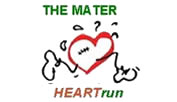DISSEMINATED HISTOPLASMOSIS DIAGNOSED ON BONE MARROW ASPIRATE CYTOLOGY: REPORT Of fOuR CASES
Abstract
Histoplasmosis, caused by two varieties of dimorphic fungi, Histoplasma capsulatum
variant capsulatum and Histoplasma capsulatum variant duboisii is a systemic fungal
infection. It has a worldwide distribution and is shown to be more prevalent in North
America and Central America. Both variants occur in Africa. Disease spectrum ranges
from asymptomatic primary infection to disseminated disease in immunocompromised
patients. Since the upsurge of Acquired Immune Deficiency Syndrome (AIDS) and
despite the availability of High Active Anti-Retroviral Therapy (HAART) many patients
still present with opportunistic infections of which histoplasmosis is one.
four cases are presented; two infants and two adults. All had disseminated disease with
multiple organ involvement and the disease was not suspected clinically. Diagnosis
was made incidentally on bone marrow aspirate cytology. The two adult cases were
HIV positive, one with CD4 counts of 132 cells/microlitre and was not on HAART.
The other was on HAART but the CD4 had not been determined. One of the infants
tested HIV negative and the others status was unknown. A high index of suspicion
is required for diagnosis as the disease may mimic tuberculosis(TB) and other causes
of hepatosplenomegaly such as visceral leishmaniasis.
Laboratory diagnosis includes culture, direct staining, antigen and antibody detection.
Antibody detection may give false negative in the immunocompromised patient. The
infection responds well to antifungal agents (amphotericin B is the drug of choice)
and life long maintenance therapy may be required in AIDS especially if CD4 counts
remain less than 150 cells/microlitre.
Histoplasmosis should be a differential diagnosis in immunosuppressed patients with
unexplained fever, weight loss, hepatosplenomegaly and chest findings especially if
not responding to anti-TB treatment.
variant capsulatum and Histoplasma capsulatum variant duboisii is a systemic fungal
infection. It has a worldwide distribution and is shown to be more prevalent in North
America and Central America. Both variants occur in Africa. Disease spectrum ranges
from asymptomatic primary infection to disseminated disease in immunocompromised
patients. Since the upsurge of Acquired Immune Deficiency Syndrome (AIDS) and
despite the availability of High Active Anti-Retroviral Therapy (HAART) many patients
still present with opportunistic infections of which histoplasmosis is one.
four cases are presented; two infants and two adults. All had disseminated disease with
multiple organ involvement and the disease was not suspected clinically. Diagnosis
was made incidentally on bone marrow aspirate cytology. The two adult cases were
HIV positive, one with CD4 counts of 132 cells/microlitre and was not on HAART.
The other was on HAART but the CD4 had not been determined. One of the infants
tested HIV negative and the others status was unknown. A high index of suspicion
is required for diagnosis as the disease may mimic tuberculosis(TB) and other causes
of hepatosplenomegaly such as visceral leishmaniasis.
Laboratory diagnosis includes culture, direct staining, antigen and antibody detection.
Antibody detection may give false negative in the immunocompromised patient. The
infection responds well to antifungal agents (amphotericin B is the drug of choice)
and life long maintenance therapy may be required in AIDS especially if CD4 counts
remain less than 150 cells/microlitre.
Histoplasmosis should be a differential diagnosis in immunosuppressed patients with
unexplained fever, weight loss, hepatosplenomegaly and chest findings especially if
not responding to anti-TB treatment.
Refbacks
- There are currently no refbacks.


